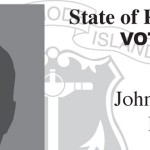Things We Read Today (30), Monday
Restless and Distracted
I’ve been trying to find some parallel for today’s anxiety. To some extent, it’s like the day before a performance of some kind, but for the most part, things are out of any individual’s hands. Perhaps it’s like the day before a flight (for those unaccustomed to flying) or a significant surgery for an illness that isn’t quite fatal.
Only, it’s a flight or a surgery in which there’s roughly a 50:50 chance that the people on whom we’re depending will get it wrong.
Getting It Wrong and Race
One interesting ripple in today’s daily reading has been discussion of race and the presidential election. Paul Bedard reports that the employment situation is particularly painful for certain minorities:
According to the government, the overall youth unemployment rate is 12 percent. But for younger black voters, a critical Obama support block, the rate is a staggering 21.4 percent. And for Hispanic youth voters it is 13.4 percent.
According to the youth-focused group Generation Opportunity, which pulled the youth figures out of the overall labor numbers, the picture might be worse.
“The declining labor force participation rate has created an additional 1.7 million young adults that are not counted as ‘unemployed’ by the U.S. Department of Labor because they are not in the labor force, meaning that those young people have given up looking for work due to the lack of jobs,” they said.
In the Wall Street Journal, Jason Riley points out that disparity for black Americans has increased under President Obama, but his ethnic support has not waned appreciably:
Four years ago, 95% of black voters went for Mr. Obama, and he is likely to win something approaching that percentage in his re-election bid, notwithstanding economic data showing that blacks have lost ground on his watch. When the president assumed office, unemployment was 12.7% for blacks and 7.1% for whites. Today it is 14.3% for blacks and 7% for whites, which means that the black-white employment gap has not merely persisted under Mr. Obama but widened.
Riley goes on to discuss race-group psychology, but by my lights, Walter Russell Mead takes up the more important offshoot topic:
As we’ve noted in earlier posts, unemployment is only part of the story. America’s Black middle class is facing a crisis of historic proportions. African Americans were among the biggest losers in the housing bubble; well intentioned but ill advised policy changes intended to get more low income families and marginal households into home ownership kicked in just in time to lure African American families into the housing market at the peak of the bubble. The loss of wealth and savings has been nothing short of catastrophic; decades of progress in building net worth for middle class and lower middle class minority families have been wiped out since 2007.
… But ritualistically invoking the classical tropes of blue [i.e., liberal] social policy won’t help Black America. Traditional blue model approaches are no longer feasible: funds for new urban initiatives will be in short supply for the foreseeable future, affirmative action in education is in retreat, manufacturing will not again provide enough high wage jobs to support a growing middle class, and government hiring (direct and in organizations like the USPS) cannot and will not expand at the rates that would be required to pick up the slack. Neither wholesale industrial protection nor strict immigration restriction (both policies supported by some in the African American community in the hope that these measures would increase demand for low skilled labor and therefore create employment opportunities and raise wages for, among others, African American workers) will be adopted anytime soon.
It isn’t necessary to believe in a grand political conspiracy to observe a worrying trend: The approach to policy that follows from an ideology that distrusts our ability to conduct ourselves fairly and effectively creates a government that hinders economic activity, disproportionately harming the most disadvantaged. That same ideology then insists upon an approach to mitigating harm that entails dependency on government handouts, which incidentally protects the ideology’s most dedicated politicians.
If I may dip into an ideological cliché of my own, nothing will ensure advancement across demographies more effectively than economic and social freedom, built on a foundation of cultural stability. In short: conservatism would be a better bet for everybody involved, but most especially those who face the greatest obstacles.
That’s a point that inspires quick mockery in locales like Rhode Island, but wise observers will wonder why the mockers don’t take the more effective approach of reasoned demolition of the ideas at which they sneer. (Perhaps it’s because the ideas are sound.)
Federal RI Job Estimates as a Foil
Fresh for Election Day, the Rhode Island Department of Labor and Training (DLT) has released an update to its numbers disputing the federal government’s jobs estimates for Rhode Island. And it’s a good thing the federal government is (ostensibly) low-balling RI’s jobs, because it looks a lot better to say, “Rhode Island job growth exceeded original employment estimates for the second quarter of 2012 by 5,700 jobs,” than it does to say that jobs only increased by 1,800 from June 2011 to June 2012 or (even more) that jobs decreased by 2,600 from March 2012 to June 2012.
To be clear, both of those less-sunny statements come from the DLT’s “improved” results.
I offered some deeper explanation of the various ways of looking at these numbers back in August. The upshot is that, no matter whose side one takes on the data debate, it would be a grievous error for any Rhode Islanders to ease up any pressure they are applying (or planning to apply) to people in power to change the way the state does business.
That Ol’ Social Wedge
As the jobs data illustrates, Rhode Island is far from a recovery (assuming it could be properly said that we’re no longer backsliding). So, naturally, during this election cycle we’ve been hearing a lot about… same-sex marriage. I particularly like this line from advocate Ray Sullivan, via Ian Donnis:
At the end of the day, we believe that the General Assembly is elected to be leaders. They’re elected to make decisions on behalf of their constituents. And faced with the alternative of putting a civil rights issue on the ballot – where tons of outside money and resources would be poured into it; real people would be affected and quite frankly, adversely impacted – we believe that it is the General Assembly’s prerogative to pursue this and to pursue it quickly.
Yes, how much better to have “tons of outside money and resources” pouring in to elect candidates who will vote on all sorts of issues entirely unrelated to this single social issue. Anybody else question whether advocates for same-sex marriage will just happen to be effective on economic issues?
(Of course, we have reason to suspect that Sullivan’s argument is pretty thoroughly situational, based on likely results of different methods of passing his single issue.)
The Election’s Biggest Loser
This is more of a national comment than a local one), but I have to close this pre-election column agreeing with Tucker Carlson and Neil Patel:
By tomorrow night we’ll likely know the name of the next president. But we already know the loser in this election cycle: political reporters. They’ve disgraced themselves. Conservatives have long complained about liberal bias in the media, and with some justification. But it has finally reached the tipping point. Not in our lifetimes have so many in the press dropped the pretense of objectivity in order to help a political candidate. The media are rooting for Barack Obama. They’re not hiding it.
This observation applies, I think, to Rhode Island’s state of decline. As hard as many of our local information gatherers genuinely try to be fair, objective, and challenging, at the end of the day, they agree with the assumptions of the political class that has brought us arguably the worst state economy in the United States, right in the middle of a relatively wealthy region.
I remember, very well, the everything-I-thought-I-knew-is-wrong sensation as I transitioned from rock-star-wannabe liberal to traditionalist conservative. Local media don’t have to push their readers, listeners, or viewers through that particular looking glass, but there’s a deep well of insight out there that can give the audience the sense that there is hope, that there is another way forward, and that the news organization presenting it alongside the received wisdom is an irreplaceable resource for current events.
On the national scale, I think it’s too late.




